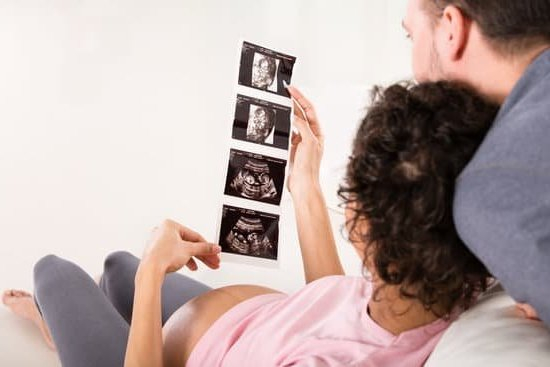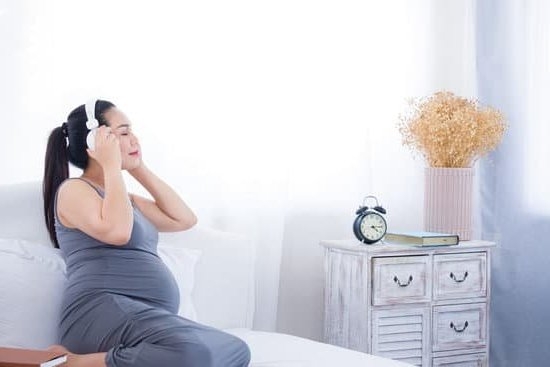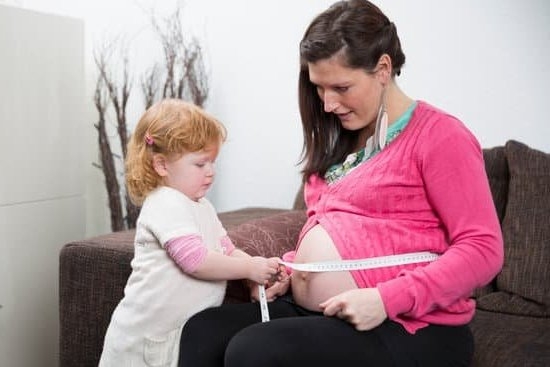How soon after ovulation can you take a pregnancy test? Understanding the process and timeline of ovulation is crucial in determining the right time for accurate testing. Ovulation, the release of an egg from the ovary, typically occurs around day 14 of a woman’s menstrual cycle. This marks the fertile window when conception is most likely to happen. After ovulation, if fertilization occurs, the embryo implants in the uterus and begins producing pregnancy hormones.
Timing plays a significant role in obtaining reliable results when taking a pregnancy test after ovulation. It is recommended to wait at least 10-14 days after ovulation before testing for pregnancy. Testing too early may result in a false negative as the body has not produced enough pregnancy hormones to be detected by the test. The accuracy of the test increases with each passing day post-ovulation, ensuring more reliable results.
Before taking a pregnancy test, it’s essential to be aware of early pregnancy symptoms that might indicate a potential pregnancy. These symptoms can include fatigue, breast tenderness, nausea, and increased urination. Being mindful of these signs can help prepare individuals for possible outcomes when taking a test after ovulation. Understanding ovulation and its timeline can aid in making informed decisions regarding pregnancy testing and next steps in family planning.
Timing Is Key
When it comes to taking a pregnancy test after ovulation, timing is crucial for accurate results. Ovulation is the process in which a mature egg is released from the ovary, ready to be fertilized by sperm. This typically occurs around the midpoint of a woman’s menstrual cycle. Knowing when ovulation has taken place is essential in determining when it is appropriate to take a pregnancy test.
To increase the chances of an accurate result, it is recommended to wait at least 12-14 days after ovulation before taking a pregnancy test. This waiting period allows enough time for the fertilized egg to implant in the uterus and for pregnancy hormone levels to rise high enough to be detected by a test. Testing too early can result in a false negative due to low hormone levels.
Listed below are some key points to consider regarding the timing of taking a pregnancy test after ovulation:
- Wait at least 12-14 days after ovulation before testing for optimal accuracy.
- Testing too early can lead to false negatives due to low hormone levels.
- If unsure about when ovulation occurred, track your menstrual cycle or use an ovulation predictor kit for better accuracy.
By understanding the importance of timing when taking a pregnancy test after ovulation, individuals can ensure more reliable results and avoid potential disappointment or confusion. It is always best to consult with a healthcare provider if there are any concerns or questions about when and how soon after ovulation one should take a pregnancy test.
Early Pregnancy Symptoms
When it comes to early pregnancy symptoms, many women may experience subtle changes in their bodies that could indicate a potential pregnancy before taking a test. While these signs are not definitive proof of being pregnant, they can serve as clues for those who are trying to conceive. Some common early pregnancy symptoms include:
- Implantation bleeding: Light spotting that occurs when the fertilized egg attaches to the uterine lining
- Missed period: One of the most well-known signs of pregnancy is a late or missed menstrual cycle
- Breast changes: Swollen, tender breasts could be an early indicator of pregnancy due to hormonal fluctuations
It is important to note that not all women will experience these symptoms, and some may not notice any changes until later in their pregnancy. However, paying attention to your body and being aware of these potential signs can help you decide when to take a pregnancy test.
Before rushing to take a pregnancy test, it is essential to consider these possible early pregnancy symptoms and understand that they may vary from person to person. If you suspect you might be pregnant based on these signs, it is recommended to wait until at least one week after your missed period before taking a test for more accurate results.
This waiting period allows enough time for the hormone hCG (human chorionic gonadotropin) levels to rise significantly in the body, making it easier for the test to detect them accurately.
In addition to considering early pregnancy symptoms, understanding your ovulation cycle can also play a crucial role in determining when and how soon after ovulation you should take a pregnancy test. By tracking your ovulation using methods such as basal body temperature charting or ovulation predictor kits, you can pinpoint the best time for testing and increase the chances of obtaining reliable results.
Remember that patience is key when it comes to taking a pregnancy test after ovulation; waiting for an appropriate timeframe can save you from unnecessary stress and frustration.
Types of Pregnancy Tests
Understanding the different types of pregnancy tests available is crucial for individuals trying to confirm a suspected pregnancy. The two main types are urine-based home pregnancy tests and blood tests conducted at healthcare facilities. Urine tests are more commonly used due to their convenience, availability over-the-counter, and ease of use.
These tests detect the hormone hCG (human chorionic gonadotropin), which is produced by the placenta after implantation occurs. Blood tests, on the other hand, can detect lower levels of hCG earlier than urine tests, making them more sensitive in detecting early pregnancies.
Finding the Right Test
When considering which type of pregnancy test to use, it’s essential to understand how they work and their respective sensitivity levels in detecting hCG. While some home pregnancy tests claim accuracy as early as 4-5 days before a missed period, these results may not always be reliable.
Blood tests are considered more accurate and can detect hCG levels as early as 7-12 days after conception. However, it’s important to note that most healthcare providers recommend waiting until after a missed period for the most accurate results.
| Pregnancy Test Type | Detection Sensitivity |
|---|---|
| Urine-based Home Pregnancy Test | Varies but typically around 25mlU/ml |
| Blood Pregnancy Test (Quantitative) | Can detect hCG levels as low as 5mlU/ml |
How Soon Can You Test
When it comes to determining pregnancy after ovulation, timing is crucial. Pregnancy tests work by detecting the presence of the hormone hCG (human chorionic gonadotropin) in urine or blood. This hormone is produced by the cells that will eventually form the placenta once a fertilized egg attaches to the uterine wall. The levels of hCG increase rapidly in early pregnancy, doubling every 2-3 days, making it detectable by a pregnancy test.
Typically, you can start taking a home pregnancy test about 10-14 days after ovulation. However, some modern tests on the market claim to provide accurate results even earlier, as soon as 5-6 days before your missed period.
These tests are designed to be more sensitive and detect lower levels of hCG, giving you an early indication of whether you may be pregnant. It’s important to note that testing too early can result in false negatives due to low hormone levels.
To maximize accuracy and minimize the risk of false results, it’s recommended to wait until after you have missed your period before taking a pregnancy test. Waiting until this point increases the likelihood of receiving an accurate result and reduces unnecessary anxiety caused by potential false negatives.
Additionally, if you receive a negative result but suspect you may still be pregnant, waiting a few days and retesting can sometimes yield different results as hCG levels increase with time post-ovulation.
| Days Post-Ovulation | Time Frame for Testing |
|---|---|
| 5-6 days | Possible with highly sensitive tests; risk of false negative |
| 10-14 days | Ideal timeframe for accurate results; recommended minimum wait time |
| After missed period | Optimal timing for testing to reduce chances of false negatives |
Factors Affecting Test Accuracy
When it comes to taking a pregnancy test after ovulation, there are several factors that can affect the accuracy of the results. Understanding these factors is essential in ensuring that you get reliable results from your test.
Timing of Test
One key factor that can impact the accuracy of a pregnancy test after ovulation is the timing of the test. For the most accurate results, it is recommended to wait until at least one week after ovulation before taking a pregnancy test. Testing too early can result in a false negative as the levels of hCG (the pregnancy hormone) may not be high enough to be detected by the test.
Quality of Test
The quality of the pregnancy test you choose can also play a role in its accuracy. While most over-the-counter tests are reliable, some may be more sensitive than others in detecting lower levels of hCG. It is important to read the instructions carefully and use a reputable brand for accurate results.
Health Conditions
Certain health conditions such as polycystic ovary syndrome (PCOS) or recent fertility treatments can also affect the accuracy of a pregnancy test after ovulation. These conditions may cause hormonal fluctuations that could interfere with the results of the test. If you have any concerns about how your health condition may impact your test results, it is recommended to consult with a healthcare provider for guidance on when and how to take a pregnancy test.
Tips for Testing
When it comes to taking a pregnancy test after ovulation, there are certain tips and guidelines that can help ensure a successful and accurate result. One important tip is to choose the right time of day to take the test.
It is recommended to take a pregnancy test in the morning when your urine is more concentrated, as this can increase the accuracy of the results. Additionally, try to avoid drinking excessive amounts of liquids before taking the test, as this can dilute your urine and potentially affect the results.
Another helpful tip for testing after ovulation is to read the instructions carefully before proceeding with the test. Make sure to follow the manufacturer’s guidelines on how long to wait before checking the results and what indicators to look for. Some tests may require waiting a specific amount of time before reading the results, so be sure to adhere to these instructions for accurate outcomes.
Furthermore, it’s essential to understand that not all pregnancy tests are created equal. While some tests can detect pregnancy hormones as early as 7-10 days after ovulation, others may require a longer window of time. Consider using a sensitive early-detection test if you’re eager to find out how soon after ovulation you can take a pregnancy test.
These tests are designed to detect lower levels of hCG (human chorionic gonadotropin) hormones earlier in pregnancy, allowing for earlier detection than standard tests. By choosing the right type of test and following these tips for testing after ovulation, you can increase your chances of obtaining accurate results in determining whether you’re pregnant or not.
Waiting Game
After ovulation, many women eagerly anticipate taking a pregnancy test to determine if conception has occurred. However, it is crucial to understand the timing involved in accurately determining pregnancy through a test. Generally, most home pregnancy tests claim to be accurate as early as the first day of a missed period.
This translates to about 12-14 days after ovulation for women with regular menstrual cycles. Taking a pregnancy test too soon after ovulation may result in a false negative due to low levels of the hormone hCG that indicate pregnancy.
It is essential to consider factors that can affect the accuracy of a pregnancy test when determining how soon after ovulation you can take one. These include the sensitivity of the test, individual hCG levels, and potential ovulation or implantation timing variations.
Additionally, some tests are more sensitive than others and can detect lower levels of hCG earlier in pregnancy. For best results, it is recommended to wait until at least a week after your missed period to ensure accurate results and avoid potential disappointment from a false negative.
If you receive a negative result on your first pregnancy test after ovulation but still suspect you may be pregnant due to symptoms or other indicators, it is advisable to wait a few days and retest. Some women may have low hCG levels initially that rise over time, leading to a positive result on subsequent tests.
Remember that everyone’s body is different, so patience and proper timing are key when deciding how soon after ovulation you can take a pregnancy test for reliable results.
Conclusion
In conclusion, knowing how soon after ovulation you can take a pregnancy test is crucial in determining accurate results. Understanding the process of ovulation and the timing involved is essential in increasing the likelihood of detecting pregnancy hormones. While early pregnancy symptoms can sometimes be indicative of a potential pregnancy, it is essential to rely on a reliable pregnancy test to confirm.
When it comes to taking a pregnancy test after ovulation, it is recommended to wait until at least 12-14 days post-ovulation for the most accurate results. This allows the levels of hCG, the hormone detected by pregnancy tests, to build up sufficiently in your system. Factors such as the sensitivity of the test and how well you track your cycle can also affect the accuracy of the results.
For those eagerly awaiting their test results, patience is key. If the first test comes out negative and you still suspect you may be pregnant, waiting a few more days and testing again can provide more clarity. Ultimately, consulting with a healthcare provider for further guidance and support is always advised, especially if you have concerns or questions about pregnancy testing or your overall reproductive health.
Frequently Asked Questions
How Soon After Ovulation Is Pregnancy Test Positive?
A pregnancy test can typically show a positive result around 10-14 days after ovulation. This time frame allows for the fertilized egg to travel to the uterus and for the body to start producing hCG hormone detectable by the test.
Can You Take a Pregnancy Test 7 Days After Ovulation?
Taking a pregnancy test 7 days after ovulation is generally too early to get an accurate result. It usually takes around 10-14 days post-ovulation for there to be enough hCG in your system for a pregnancy test to detect, so testing too soon may lead to a false negative.
How Soon Will a Pregnancy Test Read Positive?
A pregnancy test can read positive as early as 7-10 days past ovulation if implantation occurs quickly and hCG levels rise rapidly. However, for most women, it’s more reliable to wait until at least 10-14 days post-ovulation for a more accurate result.
Timing is crucial for the best chance of an accurate reading on a pregnancy test.

Welcome to my fertility blog. This is a space where I will be sharing my experiences as I navigate through the world of fertility treatments, as well as provide information and resources about fertility and pregnancy.





